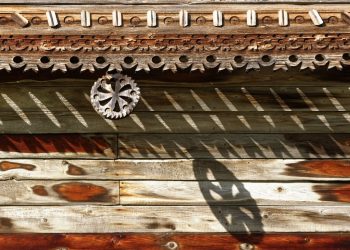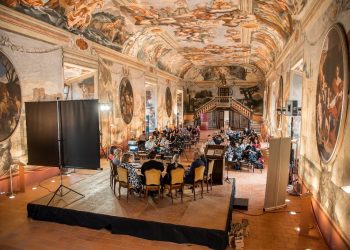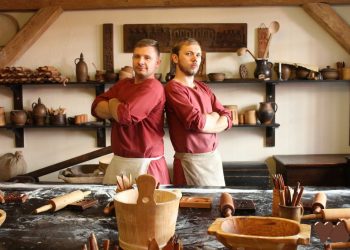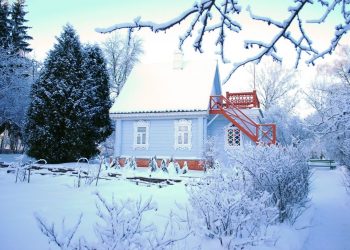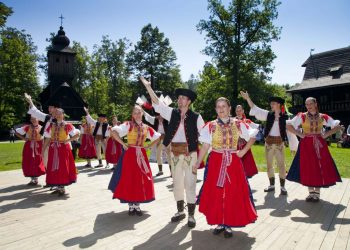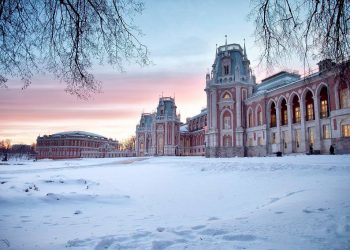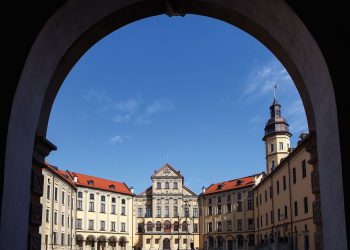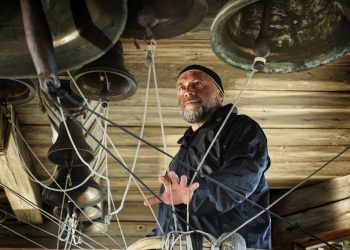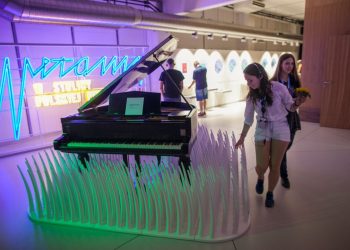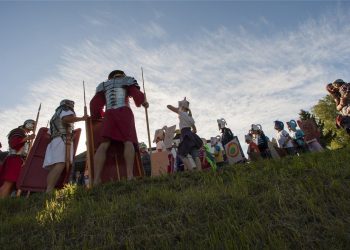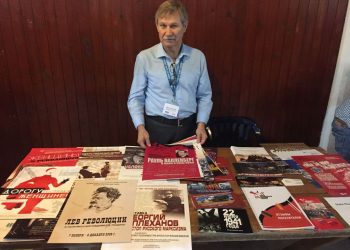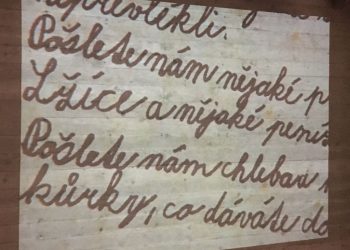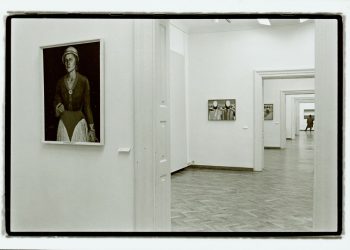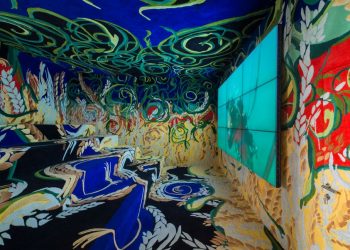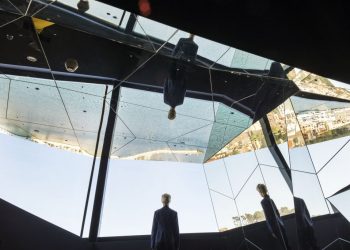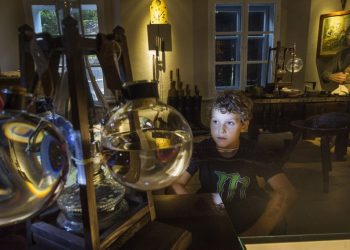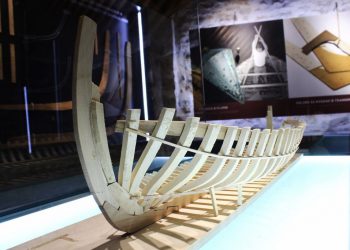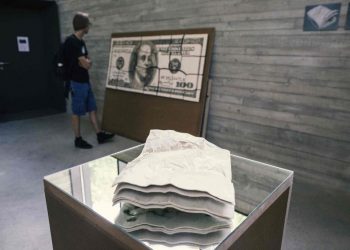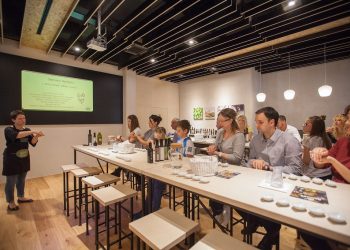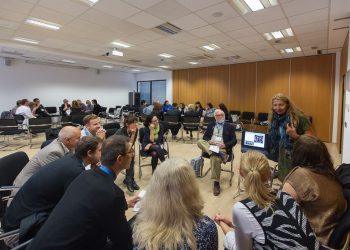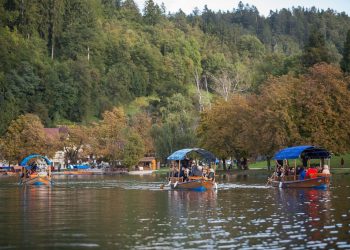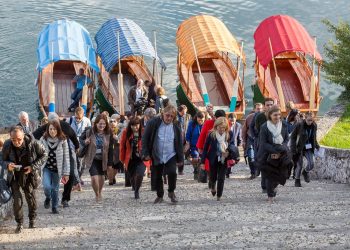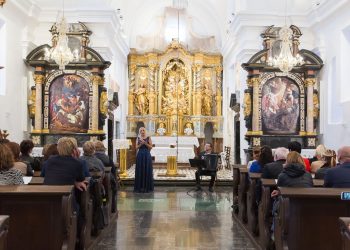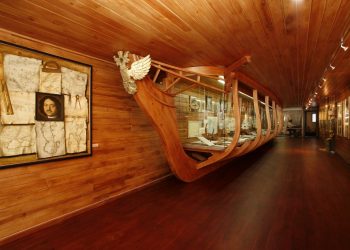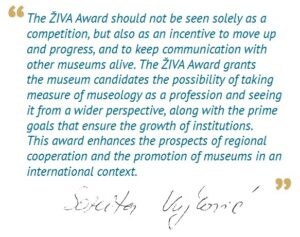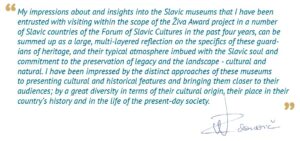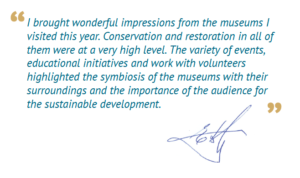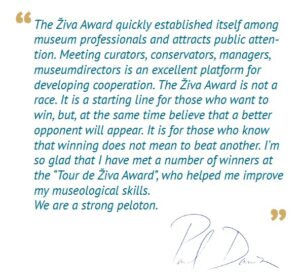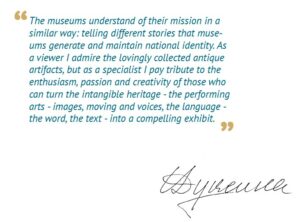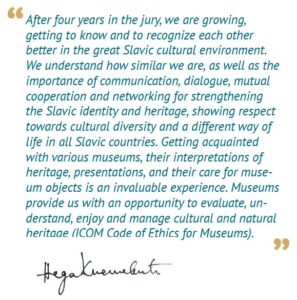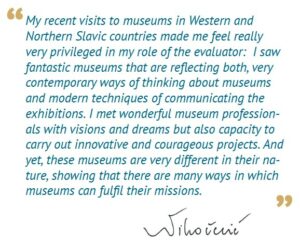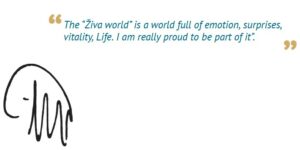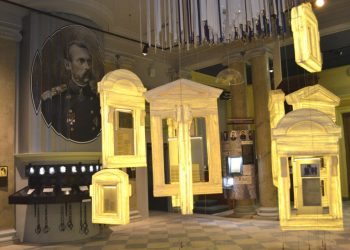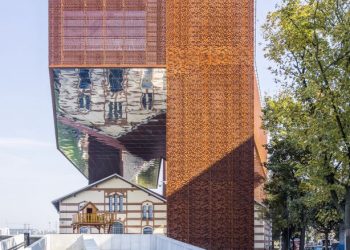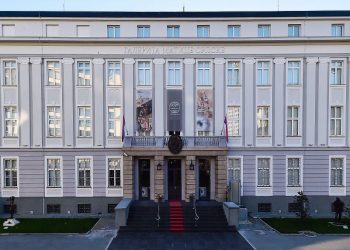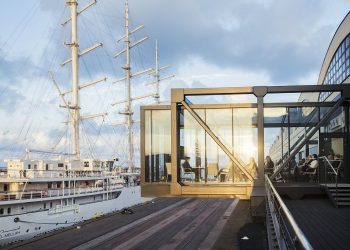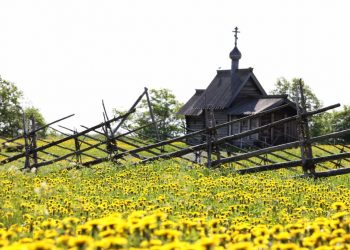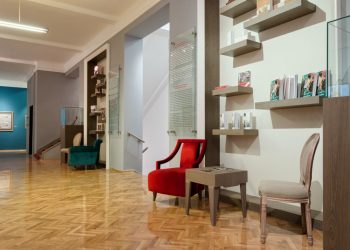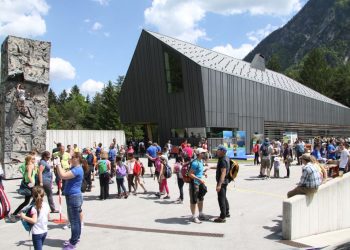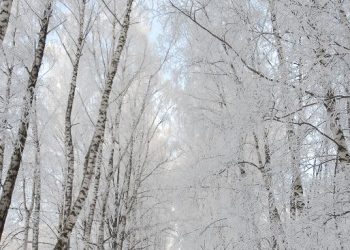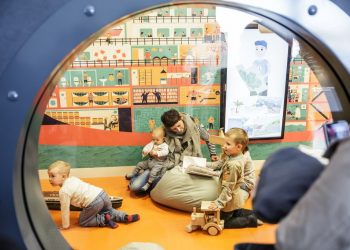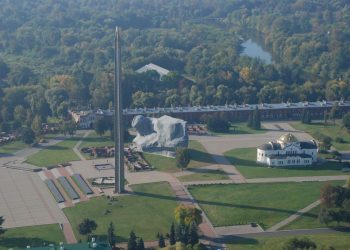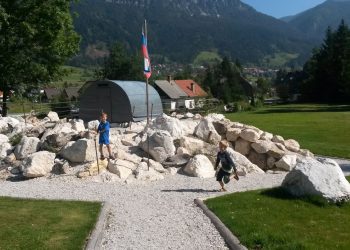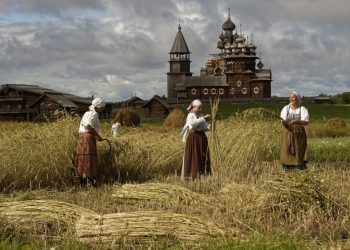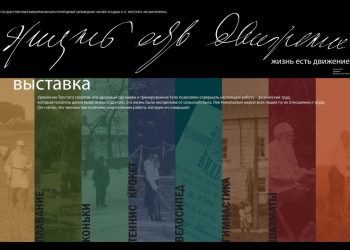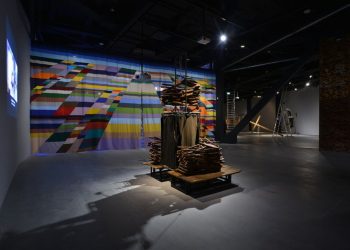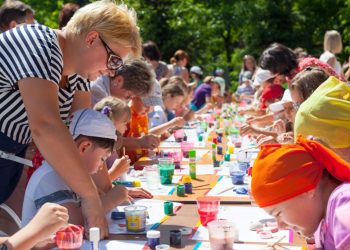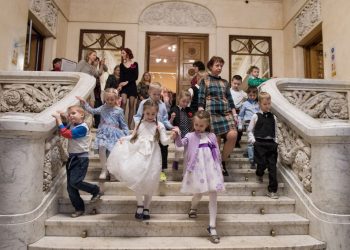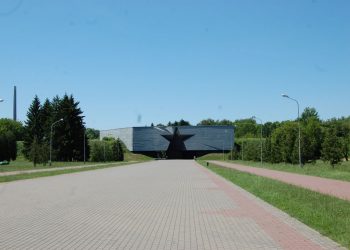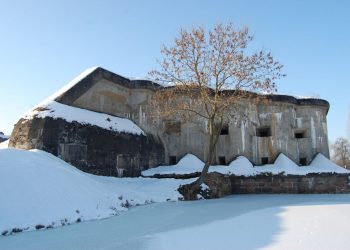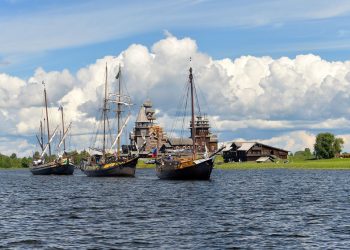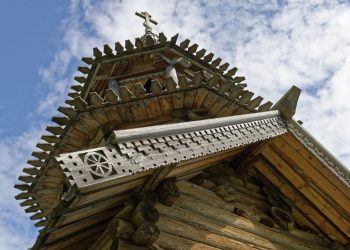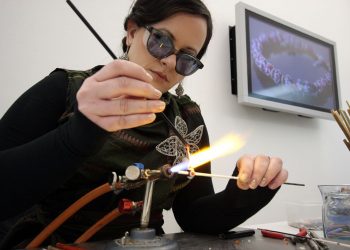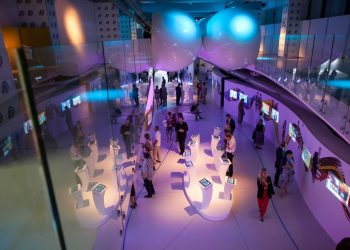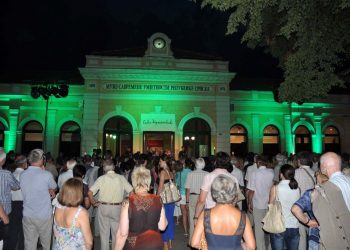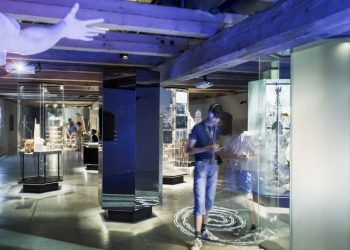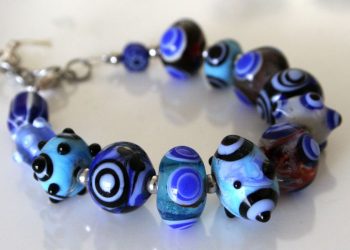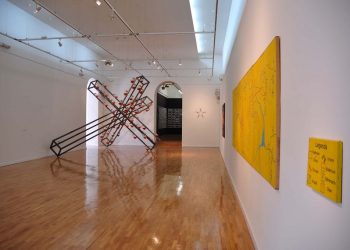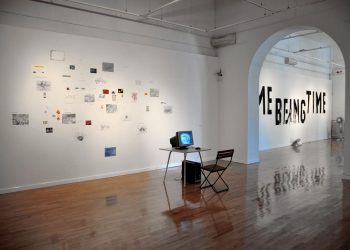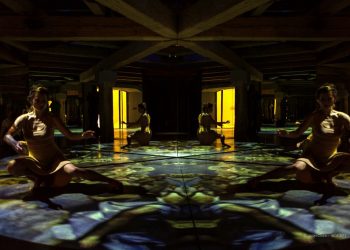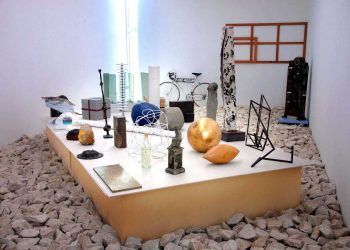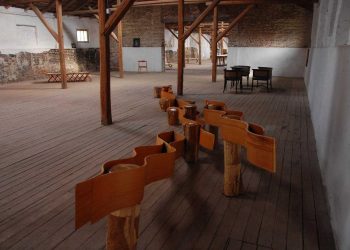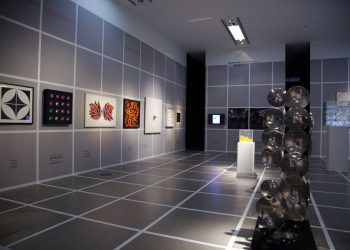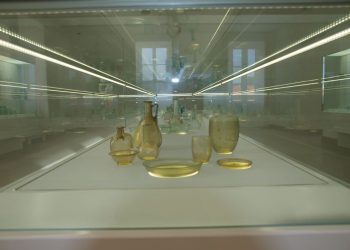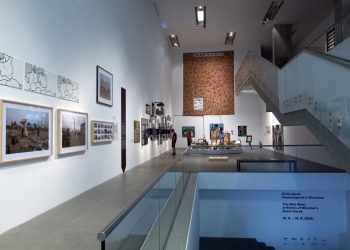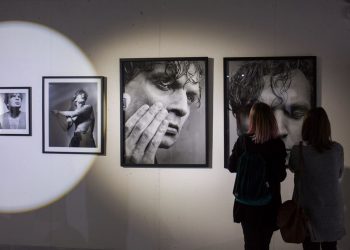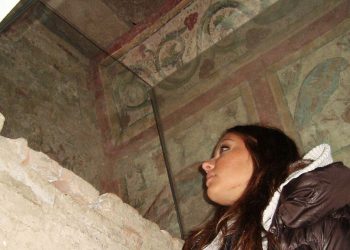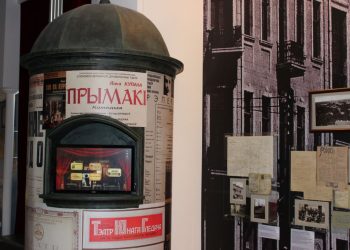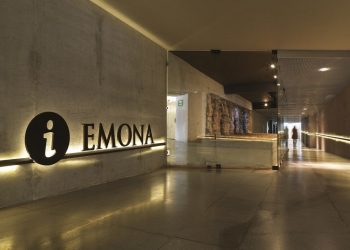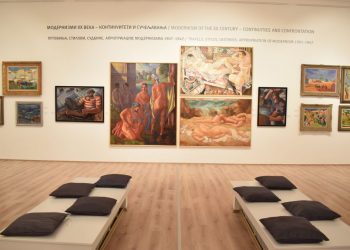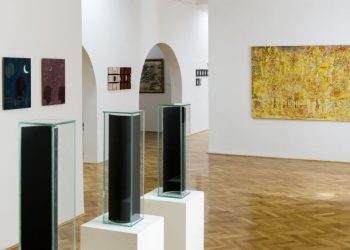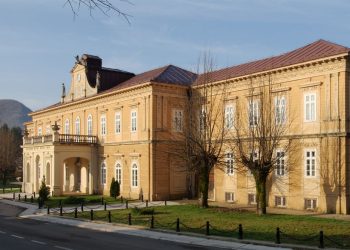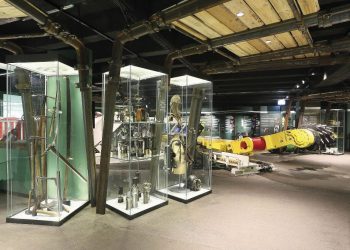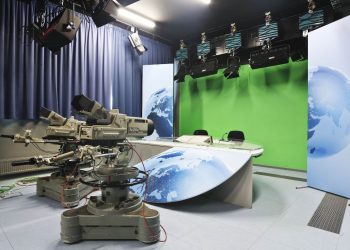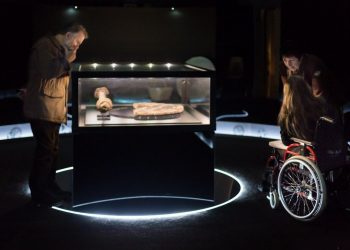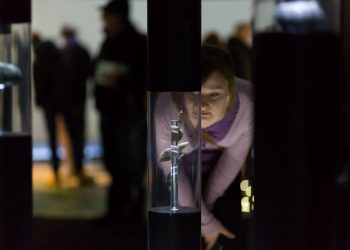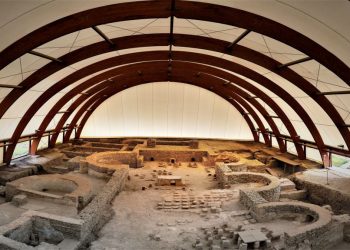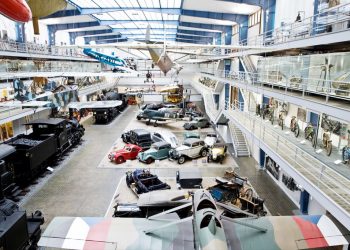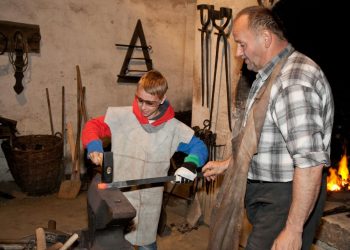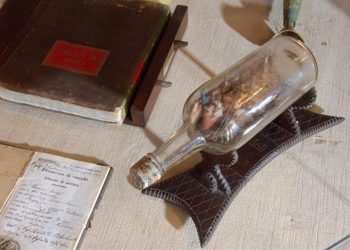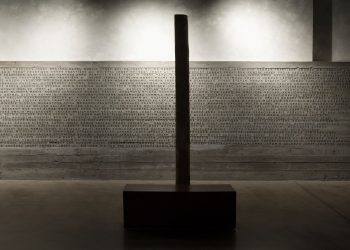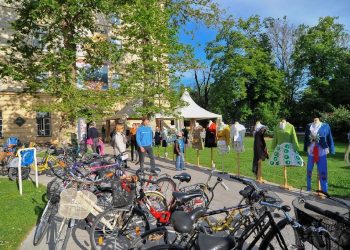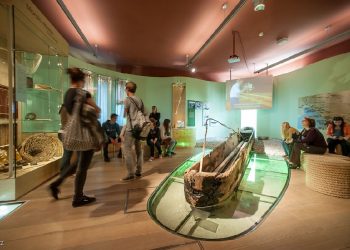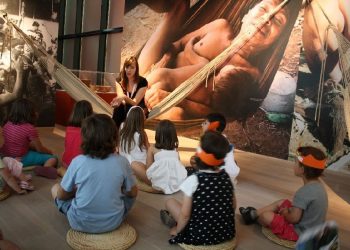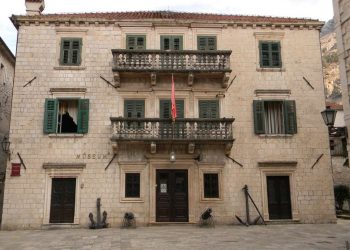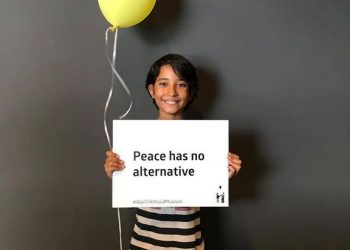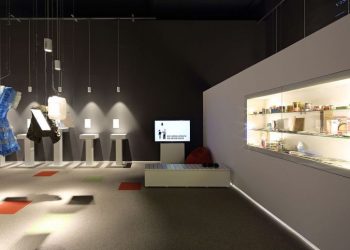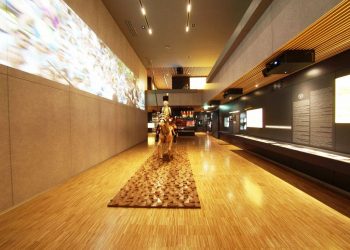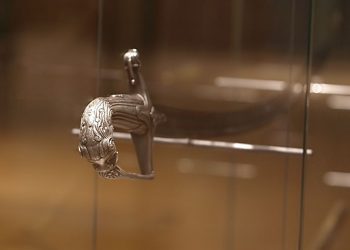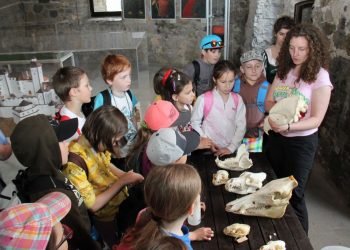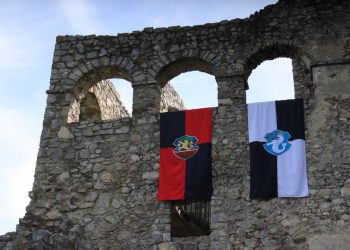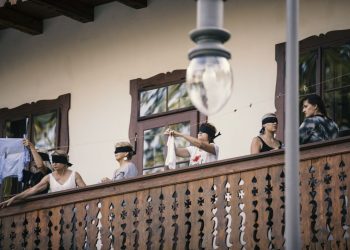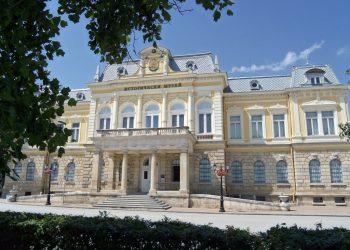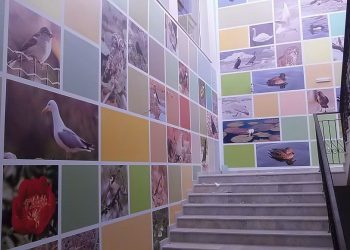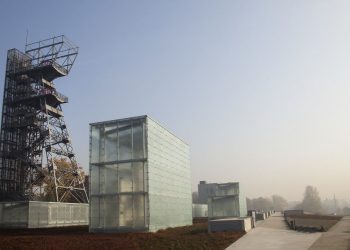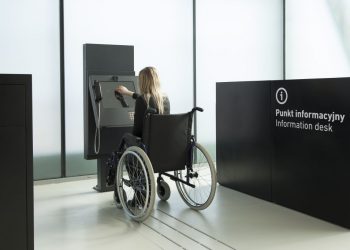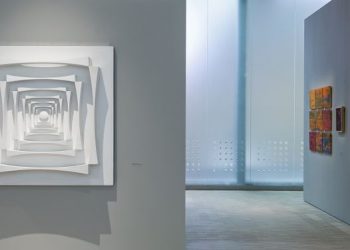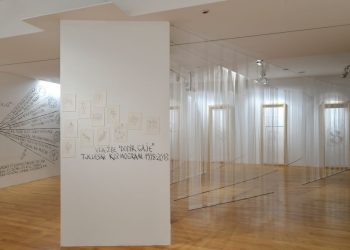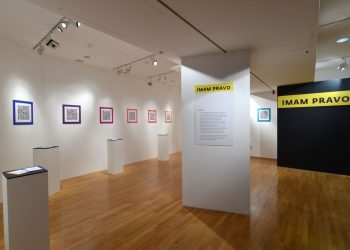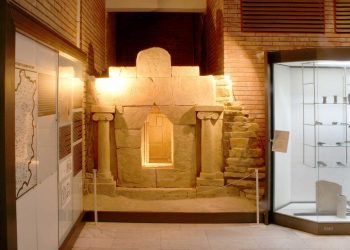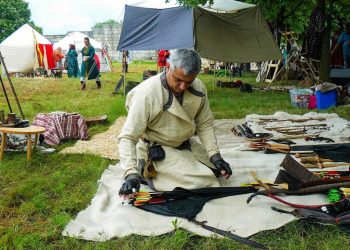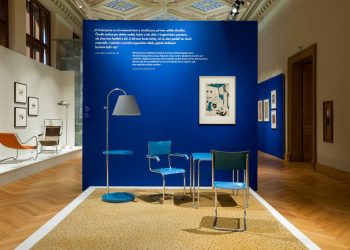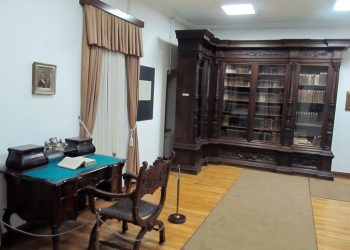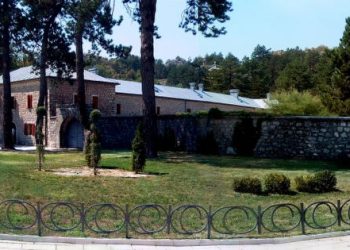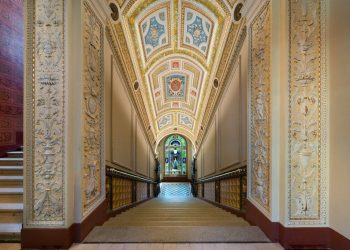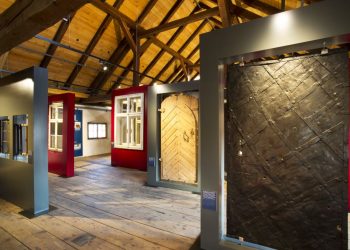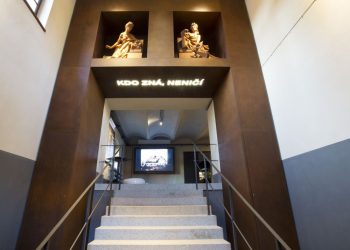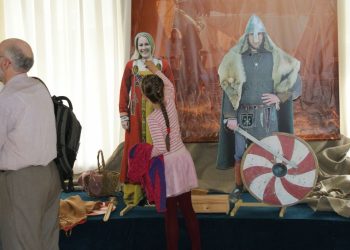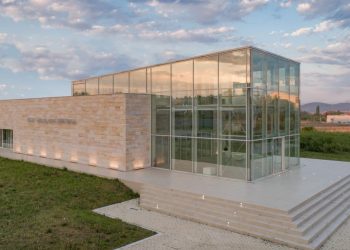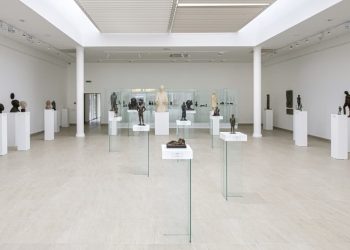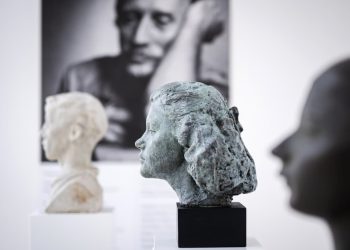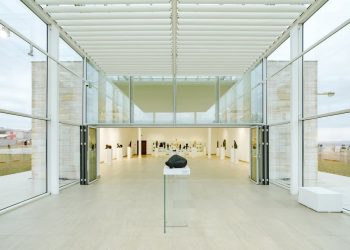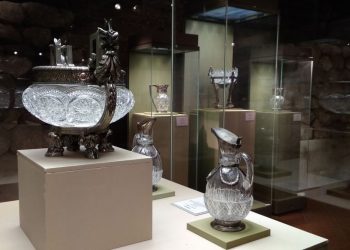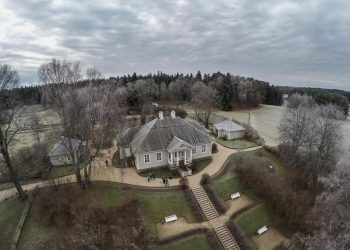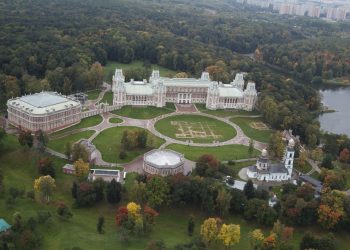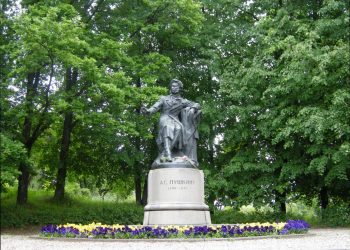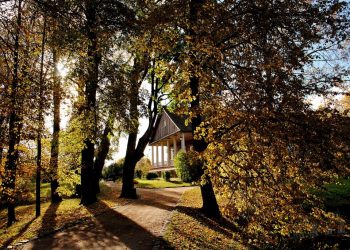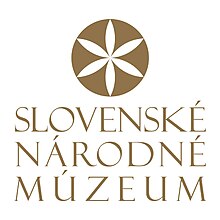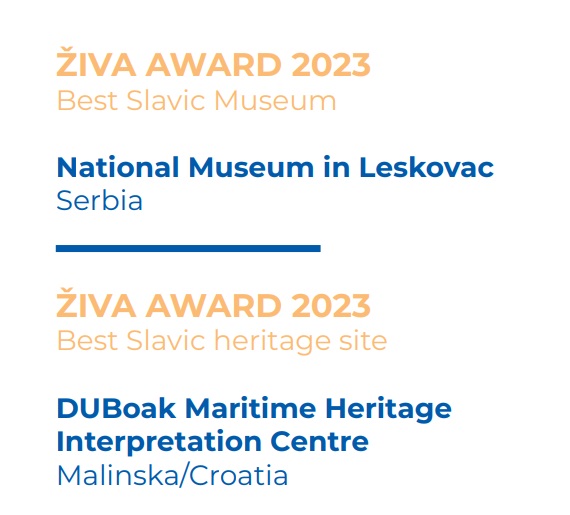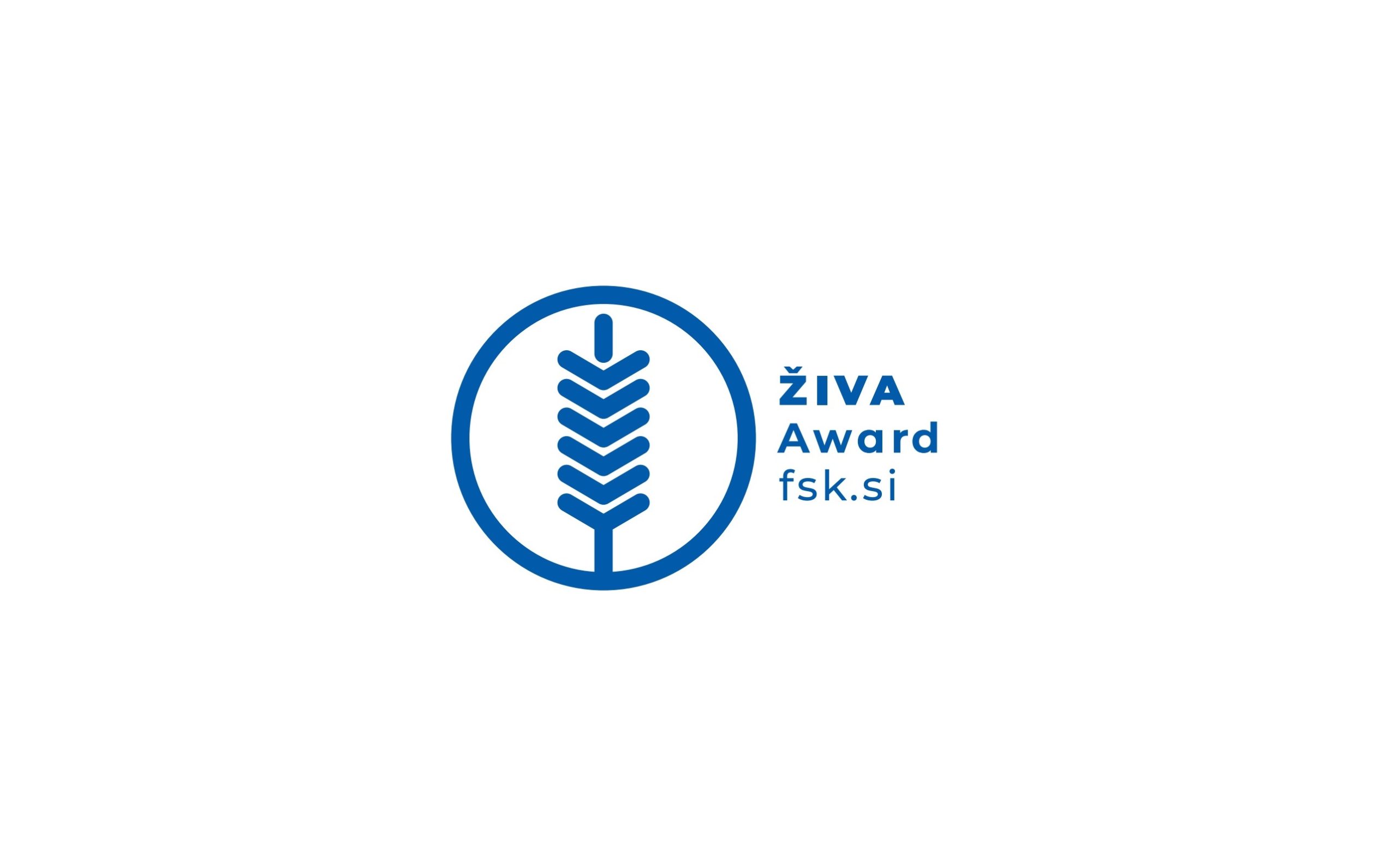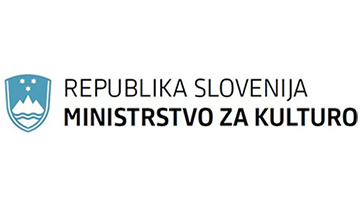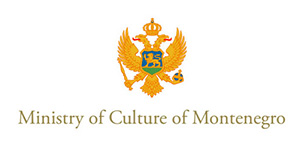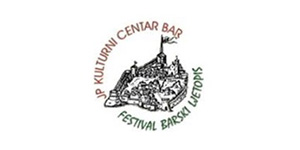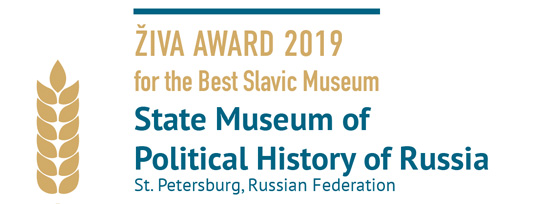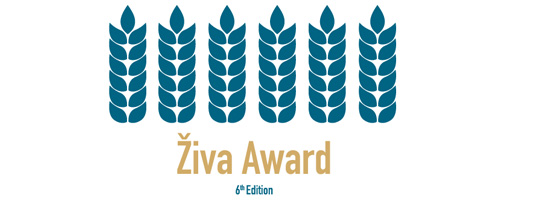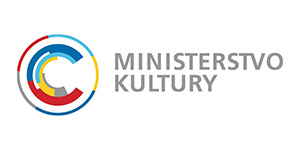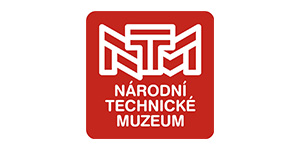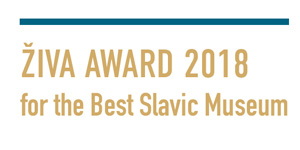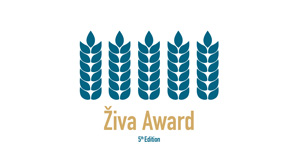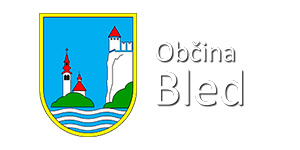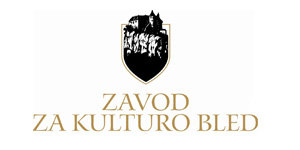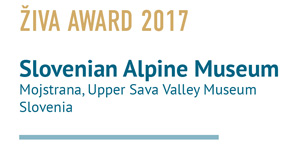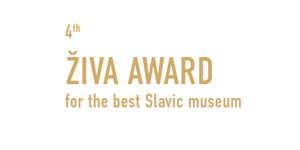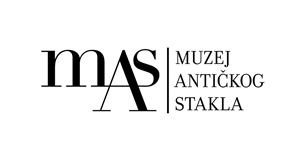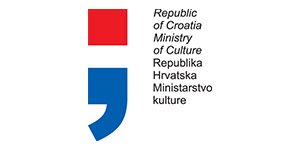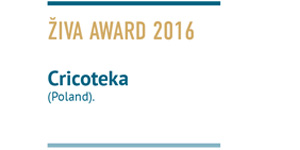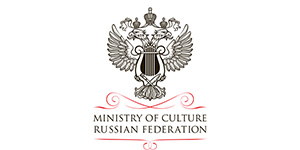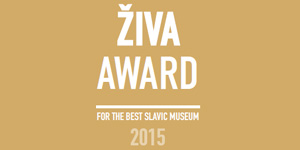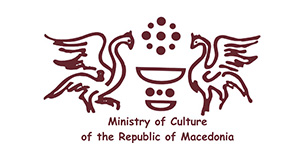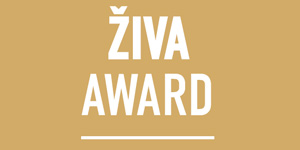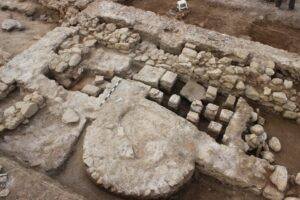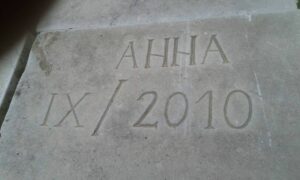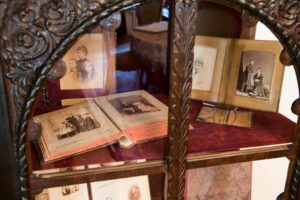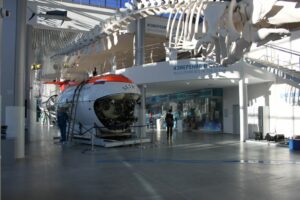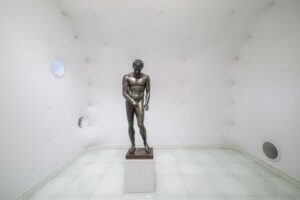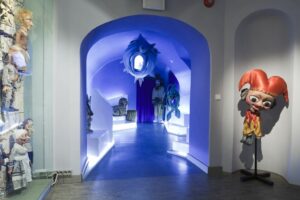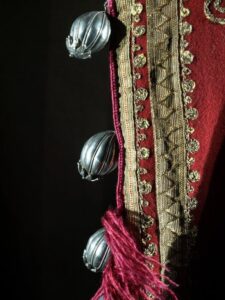Živa

The Živa Award for the Best Slavic Museum and for the Best Heritage Site in Slavic countries aims at identifying, encouraging, rewarding and promoting experiments, projects, practices in the museum sector within the specific cultural and geographical framework of the European countries of Slavic culture recognizing the peculiarities and specific values of the Slavic world with its story, its traditions, its heritage, its common and sometimes contradictory roots as well as its problems.
The Živa is alive trough:
- Annual Call for Museums and Heritage Sites
- Jury work
- Annual Ceremonies and Conferences
- Živa Award Winners and Special Recognitions recipients
- Publications
- Živa network
“It is an Award which at the same time collect interesting experiences and make possible to share them at the transnational level. It encourages competition in order to increase the number of museums which can do better more than simply to be the best ones and it is based on the idea that knowledge and sharing of experiences is essential for determining a more influential role of museums in our societies.”

THE ANNUAL PROCEDURE
There is an amazing, and growing number of Slavic museums and heritage sites which extend their role in society with a significant local or national impact. That is admirable in itself, but these experiences need to be shared, seen and acknowledged. And the Živa Award – with all its applicants – is a major entrance point for the FSK stakeholders, colleagues and audiences.
The Award serves as a platform for sharing and promoting – in Slavic countries as well as in the broader group of European countries. Both main awards (The Živa Award for the Best Slavic Museum and the Živa Award for the Best Slavic Heritage Site) are dedicated to the promotion of the protection, preservation, education and communication of museum collections, and of heritage sites, their diversity in type, size and contents as well as their social role by highlighting their innovative and creative approaches, accessibility to the public and openness, their impact on societies, and their contribution to the development of museological principles and ideas.
There is an amazing, and growing number of Slavic museums and heritage sites which extend their role in society with a significant local or national impact. That is admirable in itself, but these experiences need to be shared, seen and acknowledged. And the Živa Award – with all its applicants – is a major entrance point for the FSK stakeholders, colleagues and audiences.
The Award serves as a platform for sharing and promoting – in Slavic countries as well as in the broader group of European countries. Both main awards (The Živa Award for the Best Slavic Museum and the Živa Award for the Best Slavic Heritage Site) are dedicated to the promotion of the protection, preservation, education and communication of museum collections, and of heritage sites, their diversity in type, size and contents as well as their social role by highlighting their innovative and creative approaches, accessibility to the public and openness, their impact on societies, and their contribution to the development of museological principles and ideas.
- The Živa Award is open for the candidates from the following countires: Belarus, Bulgaria, Bosnia and Herzegovina, Czech Republic, Croatia, Montenegro, North Macedonia, Poland, Serbia, Slovakia, Slovenia and Ukraine.
- Applications are free of any financial obligations.
- Applications are welcomed from all types of museums: historical, natural-historical, technical, industrial museums or science centers, ethnographic, architecture, literary, music, art, and others. The museums can be local, regional, national or federal. Private ones are also welcome.
- Applications are welcomed from all types of heritage sites: historical buildings and structures, monuments, architectural works, archaeological sites, cultural and natural museum reserves, revitalized, reconstructed industrial buildings and areas used for museum and cultural purposes, combined works of man and nature such as gardens and parks – heritage sites of exceptional historical, artistic, scientific ethnological and anthropological value.
- To share the ideas and results with colleagues from Slavic countries and abroad.
- To have a platform to speak up and to exchange at the Award ceremony.
- To get promoted in the Živa catalogue, website, video and all FSK press-releases all year long.
- To get a wider visibility among European institutions.
- To gain an excellent PR to the stakeholders.
The selection procedure starts every autumn when an international call is published and the information on it is widely disseminated. With the assistance of the international jury the promotion and candidacies submissions take place until the end of the year. The first half of the year is dedicated to the evaluation and decisions. The judges pay visists to the museum candidates upon their complete applications. In May or the beginning of June the judges get together, review their reports, exchange their expert evaluations and decide on the award and special recognitions winners. The summer is dedicated to the organization of the Živa Award ceremony that is gradually turning into a professional get-together with the exchange of experiences.
The Živa Award cycle is concluded by the award ceremony in September. In the years of its existence the event evolved into a three-day long professional gathering featuring experts from various fields that are often complementary to the museology. A specific characteristic, now already a common practice is the presentation of the previous winner and its experiences over the year. The cycle might be fixed but the award ceremony moves to a different location every year. This brings about a great opportunity to get much better acquainted with the environments we work with.
THE JURY
Member countries of the Forum of Slavic Cultures appoint judges from each country. The European Museum Academy collaborates and provides three or four judges from its pool of experts. The team of judges consists of 13 to 14 members. Jury members come from different backgrounds such as museum directors, cultural management consultants, curators, museum personnel working in public relations and marketing experts.

Ekaterina Djoumalieva, PhD/Bulgaria
Director of Cultural Heritage, Museums and Visual Arts Directorate at the Ministry of Culture of Bulgaria

Pavel Douša, PhD/Czech Republic
Director of Kačina Chateau – Museum of Czech Rural Life, Deputy Director General of the National Agriculture Museum

Dirk Houtgraaf/Netherlands
Strategic Marketing Consultant, member of European Museum Academy Foundation Board

Neda Knežević, MA/Serbia
Director of the Museum of Yugoslavia

Lidija Nikočević, PhD/Croatia
Senior curator of the Etnographic Museum of Istria

Gordan Nikolov, MA/North Macedonia
Curator advisor – Head of collection at the National Museum of the Republic of North Macedonia
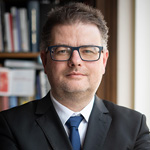
Branislav Panis/Slovakia
Director General of the Slovak National Museum

Dobrila Vlahović, MSc./Montenegro
Deputy Minister – Director General of Directorate for Cultural Heritage at Ministry of Culture and Media of Montenegro

Andreja Rihter, PhD/Slovenia
Director of the Forum of Slavic Cultures

Elia Vlachou/Greece
Museum and Cultural Management Consultant, Museum Expert of the European Museum Academy

Sarita Vujković, PhD/Bosnia and Herzegovina
Director of the Museum of Contemporary Art of the Republic of Srpska

Nina Zdravič Polič, MA/Slovenia

Olha Honchar/Ukraine
Director of the Memorial Museum of Totalitarian Regimes “Territories of Terror”

Robert Zydel/Poland
Director of the National Ethnographic Museum in Warsaw

Ekaterina Djoumalieva, PhD/Bulgaria
Director of Cultural Heritage, Museums and Visual Arts Directorate at the Ministry of Culture of Bulgaria

Pavel Douša, PhD/Czech Republic
Director of Kačina Chateau – Museum of Czech Rural Life, Deputy Director General of the National Agriculture Museum

Dirk Houtgraaf/Netherlands
Strategic Marketing Consultant, member of European Museum Academy Foundation Board

Neda Knežević, MA/Serbia
Director of the Museum of Yugoslavia

Lidija Nikočević, PhD/Croatia
Senior curator of the Etnographic Museum of Istria

Gordan Nikolov, MA/North Macedonia
Curator advisor – Head of collection at the National Museum of the Republic of North Macedonia

Branislav Panis/Slovakia
Director General of the Slovak National Museum

Dobrila Vlahović, MSc./Montenegro
Deputy Minister – Director General of Directorate for Cultural Heritage at Ministry of Culture and Media of Montenegro

Andreja Rihter, PhD/Slovenia
Director of the Forum of Slavic Cultures

Elia Vlachou/Greece
Museum and Cultural Management Consultant, Museum Expert of the European Museum Academy

Sarita Vujković, PhD/Bosnia and Herzegovina
Director of the Museum of Contemporary Art of the Republic of Srpska

Nina Zdravič Polič, MA/Slovenia

Olha Honchar/Ukraine
Director of the Memorial Museum of Totalitarian Regimes “Territories of Terror”

Robert Zydel/Poland
Director of the National Ethnographic Museum in Warsaw

Ekaterina Djoumalieva, PhD/Bulgaria
Director of Cultural Heritage, Museums and Visual Arts Directorate at the Ministry of Culture of Bulgaria

Pavel Douša, PhD/Czech Republic
Director of Kačina Chateau – Museum of Czech Rural Life, Deputy Director General of the National Agriculture Museum

Dirk Houtgraaf/Netherlands
Strategic Marketing Consultant, member of European Museum Academy Foundation Board

Neda Knežević, MA/Serbia
Director of the Museum of Yugoslavia

Lidija Nikočević, PhD/Croatia
Senior curator of the Etnographic Museum of Istria

Gordan Nikolov, MA/North Macedonia
Curator advisor – Head of collection at the National Museum of the Republic of North Macedonia

Branislav Panis/Slovakia
Director General of the Slovak National Museum

Dobrila Vlahović, MSc./Montenegro
Deputy Minister – Director General of Directorate for Cultural Heritage at Ministry of Culture and Media of Montenegro

Andreja Rihter, PhD/Slovenia
Director of the Forum of Slavic Cultures

Youlya Vronskaya/Russian Federation
Art Director of the Peredelkino Writers’ and Artists’ Residency

Elia Vlachou/Greece
Museum and Cultural Management Consultant, Museum Expert of the European Museum Academy

Sarita Vujković, PhD/Bosnia and Herzegovina
Director of the Museum of Contemporary Art of the Republic of Srpska

Nina Zdravič Polič, MA/Slovenia

Galina Alekseeva, PhD/Russian Federation
Academic Director of the State Museum-Estate of Leo Tolstoy at Yasnaya Polyana

Henrik Zipsane / Denmark
Director of the European Museum Academy
Judges on the Tour
The Jury visits all participating and nominated museums in situ, which is a rare and unique practice that enriches both, the museums and the Živa judges. The pricelessness of individual experiences is added to their professional evaluations at which they are looking for the outstanding and creative use of collections, combined with an innovative interpretative approach.
Jury Impressions
ŽIVA SCULPTURE
The author of the unique art sculpture is Ljubica Ratkajec Kočica, the Slovenian fine artist as well as glass and ceramic designer from Rogaška Slatina. Her works, which she successfully presented at individual and group exhibitions, were awarded with numerous national and international awards.
Her body of work is distinguished by innovativeness and exceptional sensitivity for the life of details in the overall form composition of art products. She devotes an important part of her creative process to the female form, which she displays with a stylized head and a simple silhouette, cleverly supplemented by individual symbols and artistic elements.
With her remarkable feeling Ljubica Ratkajec Kočica has brought the ceramic sculptures to outstanding creative achievements, where the solid structure of the ceramic forms passes over to the field of creating sculptures with a precise graphic treatment of the surface. Each of her unique masterpieces tells a story of its own and ensures a unique aesthetic experience.
WINNERS & SPECIAL RECOGNITION RECIPIENTS
ŽIVA AWARD WINNERS
Special recognitions recipients
- 2023: Říčany Museum/Czech Republic
- 2022: Museum of Contemporary Art Skopje/North Macedonia
- 2020: Božidar Jakac Art Museum/Slovenia
- 2019: Song Museum in Opole/Poland
- 2018: Museum of Contemporary Art/Croatia
- 2017: Macura Museum/Serbia
- 2016: New Generation Museum/Czech Republic
- 2015: Museum of Ancient Glass Zadar/Croatia
- 2014: Museum of Contemporary Art of the Republic of Srpska/Bosnia and Herzegovina
- 2023: Velenje Museum/Slovenia
- 2022: Castle Museum in Pszczyna, Poland
- 2020: Lviv National Literary Memorial Museum of Ivan Franko/Ukraine
- 2019: Gallery of Matica Srpska/Serbia
- 2018: Viminacium Archaelogical Park/Serbia
- 2017: State Literary Museum of Yanka Kupala/Belarus
- 2016: National Museum of Montenegro/Montenegro
- 2015: Museum and Galleries of Ljubljana/Slovenia
- 2014: National Technical Museum, Czech Republic
- 2023: Krško Cultural Centre, Rajhenburg Castle Unit/Slovenia
- 2022: “Old Village” Open Air Museum Sirogojno, Serbia
- 2020: Center for Visitors Ivana’s House of Fairy Tales/Croatia
- 2019: War Childhood Museum/Bosnia and Herzegovina
- 2018: Lidice Memorial/Czech Republic
- 2017: Wallachian Open Air Museum in Rožnov pod Radhoštěm/Czech Republic
- 2016: Museum of Alka of Sinj/Croatia
- 2015: Maritime Museum of Montenegro/Montenegro
- 2014: National Technical Museum, Czech Republic
- 2023: Nadežda Petrović Аrt Gallery/Serbia
- 2022: National Ethnographic Museum in Warsaw, Poland
- 2020: Coal Mining Museum in Zabrze/Poland
- 2019: International Centre of Graphic Arts/Slovenia
- 2018: Regional Museum of History Shumen/Bulgaria
- 2017: Silesian Museum/Poland
- 2016: Strečno Castle/Slovakia
- 2015: Typhlological Museum/Croatia
- 2014: Rousse Regional Museum of History/Bulgaria
- 2023: Ars Aevi Museum of Contemporary Art/Bosnia and Herzegovina
- 2022: Lubovna Museum – castle in Stara Lubovna/Slovakia
- 2020: Yaroslavl art museum/Russian Federation
- 2019: The Museum of Decorative Arts in Prague/Czech Republic
- 2018: NMT-Centre for building heritage in Plasy/Czech Republic
- 2017: Glinka National Museum, Consortium of Musical Culture/Russian Federation
- 2016: Novgorod State Museum/Russian Federation
- 2015: Museum of Yugoslav History/Serbia
- 2014: National Museum of Montenegro, Njegoš Museum – Biljarda/ Montenegro
- 2023: Museum of Emigration from Slovakia to North America/Slovakia
- 2022: Slovak National Museum – the Museum of the Slovak National Councils, Myjava, Slovakia
- 2020: National Museum in Belgrade/Republic of Serbia
- 2019: Tsaritsyno – State Historical, Architectural, Art and Landscape Museum –
Reserve/Russian Federation - 2018: Pushkin Museum Reserve Mikhailovskoye/Russian Federation
Culture Heroes of the Slavic Heritage
- 2023: Dmytro Yavornytsky Dnipro National Historical Museum/Ukraine
- 2023: Lviv National Literary Memorial Museum of Ivan Franko/Ukraine
- 2023: Kmytiv Museum of Art named after Y. Bukhanchuk of Zhitomyr Regional Counсil/Ukraine
- 2023: Khmelnytskyi Regional Art Museum/Ukraine
- 2023: Museum of Folk Architecture and Rural Life in Lviv named after Klymentii Sheptytskyi/Ukraine
- 2023: M. F. Sumtsov Kharkiv Historical Museum/Ukraine
- 2023: Odessa Fine Arts Museum/Ukraine
Diploma for designing a new museum
Diploma for unusual interpretation
ŽIVA AWARD NOMINEES
- Ars Aevi Museum of Contemporary Art, Sarajevo
- Vasil Levski Museum, Karlovo
- City Museum of Rijeka
- DUBoak Maritime Heritage Interpretation Centre, Malinska
- Heritage Museum Benkovac
- Central Bohemian Museum in Roztoky u Prahy
- Říčany Museum
- Local Museum of Pljevlja
- National Gallery of the Republic of North Macedonia, Skopje
- Museum of Coal Mining Senjski Rudnik
- National Museum in Leskovac
- National Museum Vranje
- Nadežda Petrović Аrt Gallery, Čačak
- Museum of Emigration from Slovakia to North America, Pavlovce nad Uhom – Ťahyňa
- Krško Cultural Centre, Rajhenburg Castle Unit
- Regional Museum Ptuj – Ormož
- Velenje Museum
- Dmytro Yavornytsky Dnipro National Historical Museum
- Kmytiv Museum of Art »Y. Bukhanchuk«
- Khmelnytskyi Regional Art Museum
- Lviv National Literary Memorial Museum of Ivan Franko
- M. F. Sumtsov Kharkiv Historical Museum
- Museum of Folk Architecture and Rural Life in Lviv »Klymentii Sheptytskyi«
- Odessa Fine Arts Museum
- Franciscan Museum and Art Gallery Gorica – Livno, Bosnia and Herzegovina
- Museum of Sarajevo, Bosnia and Herzegovina
- Zamecek Memorial Pardubice, Czech Republic
- Aquatika – freshwater aquarium Karlovac, Croatia
- Museum of Apoxyomenos, Croatia
- Museum of Contemporary Art Zagreb, Croatia
- Virovitica City Museum, Croatia
- Art Colony Danilovgrad, Montenegro
- Museum of Budva, Montenegro
- Natural History Museum of Montenegro
- Museum of Contemporary Art Skopje, Republic of North Macedonia
- Castle museum of Pszczyna, Poland
- Centre for Documentation of the Art of Tadeusz Kantor Cricoteka, Poland
- Emigration Museum in Gdynia, Poland
- National Ethnographic Museum in Warsaw, Poland
- Ethnographic Museum in Belgrade, Serbia
- Gallery of Nikola Koka Janković (National Museum in Kragujevac), Serbia
- Museum of contemporary art Belgrade, Serbia
- National Museum Aranđelovac, Serbia
- National Museum Uzice, Serbia
- Open air museum “Old Village” in Sirogojno, Serbia
- Pavle Beljanski Memorial Collection, Serbia
- Lubovna Museum – castle in Stara Lubovna, Slovakia
- Slovak National Museum – Museum of the Slovak National Councils, Slovakia
- Gorenjska Museum, Slovenia
- Museums and galleries of Ljubljana – Cukrarna Gallery, Slovenia
- Maribor National Liberation Museum, Slovenia
- Museum of Modern and Contemporary Art Koroška (KGLU), Slovenia
- National Museum of contemporary history Slovenia, Slovenia
- Radovljica Municipality Museum, Slovenia
- Woodcarving Museum, Bosnia and Herzegovina
- Regional Ethnographic Open-Air Museum “Etar”, Bulgaria
- Center for Visitors Ivana’s House of Fairy Tales, Croatia
- Karlovac City Museum, Croatia
- Museum Valpovstine, Croatia
- National Stud at Kladruby nad Labem, Czech Republic
- National Museum of Montenegro
- NI “Institute and museum” – Bitola, North Macedonia
- Coal Mining Museum in Zabrze, Poland
- Center for Cyrillic “Slovo” (“Word”), Russian Federation
- I. A. Soldatenkov Museum and exhibition centre, Russian Federation
- Yaroslavl art museum, Russian Federation
- Ust-Cilma A.V. Zhuravsky memorial museum, Russian Federation
- Museum of Naive and Marginal Art, Serbia
- National Museum in Belgrade, Serbia
- Božidar Jakac Art Museum, Slovenia
- Grom Motorcycle Museum, Slovenia
- Museum of Architecture and Design, Slovenia
- Slovene Museum of Christianity, Slovenia
- Lviv National Literary Memorial Museum of Ivan Franko
- State Institution “Memorial Complex “Brest Hero-Fortress”, Belarus
- War Childhood Museum, Bosnia and Herzegovina
- Main Museums Institution Museum Herzegovina Trebinje, Bosnia and Herzegovina
- The House of Istrian Olive Oil, Croatia
- Natural History Museum Metković, Croatia
- PI Aquatika – Freshwater Aquarium Karlovac, Croatia
- The Museum of Decorative Arts in Prague, Czech Republic
- National Institution for Management of the Archaeological Site Stobi – Gradsko, North Macedonia
- The Castle Museum in Pszczyna, Poland
- The Polish Song Museum in Opole, Poland
- Museum-Preserve of A.P. Chekhov “Melikhovo”, Russian Federation
- Vassily Polenov Fine Arts Museum and National Park, Russian Federation
- The State Museum of Political History of Russia, Russian Federation
- Yaroslavl State Historical Architectural and Art Museum-Preserve, Russian Federation
- The State Museum Preserve “The Rostov Kremlin”, Russian Federation
- Tsaritsyno Museum-Reserve, Russian Federation
- State Museum-reserve “Town-island of Sviyazhsk”, Russian Federation
- National Museum Kruševac, Serbia
- Gallery of Matica Srpska, Serbia
- Ľubovňa Museum – castle in Stará Ľubovňa, Slovakia
- The Posavje Museum Brežice, Slovenia
- International Centre of Graphic Arts (MGLC), Slovenia
- Lendava Gallery and Museum, Slovenia
- S. Korolev Space Museum, Ukraine
- National Museum of Hutsulshchyna and Pokuttya Folk Art by Y. Kobrynsky, Ukraine
- Belarusian State Museum of the History of the Great Patriotic War, Belarus
- Brest Museum of Regional Studies, Belarus
- National historical and cultural museum-reserve “Niasvizh”, Belarus
- Museum of Republic of Srpska, Bosnia and Herzegovina
- Regional Museum of History – Shumen, Bulgaria
- Regional Natural History – Plovdiv, Bulgaria
- Museum of Contemporary Art, Croatia
- Museum Radboa for Museum activity, Croatia
- Lidice Memorial, Czech Republic
- NMT-Centre for building heritage in Plasy, Czech Republic
- NI Museum of Kumanovo – Pelince Memorial Centre, Macedonia
- Public Institution Art Colony Danilovgrad, Montenegro
- Emigration Museum in Gdynia, Poland
- Living Museum of Gingerbreads, Poland
- Museum of Slavic Mythology, Poland
- Gorky Leninskie Museum, Russian Federation
- Kirillo-Belozersky Federal State Museum, Russian Federation
- Kizhi Museum, Russian Federation
- Malye Korely Museum, Russian Federation
- Museum of the World Ocean, Russian Federation
- Historical Museum of Serbia, Serbia
- Viminacium Archeological Park, Serbia
- Slavic Museum of A. S. Pushkin – Slovak National Library in Martin, Slovakia
- Koper Regional Museum, Slovenia
- Tržič Museum, Slovenia
- State Literary Museum of Yanka Kupala, Belarus
- National Museum of Bosnia and Herzegovina, Bosnia and Herzegovina
- Ancient Nessebar Museum, Bulgaria
- National Museum Earth and Man, Bulgaria
- City Museum Požega, Croatia
- Memorial Centre Lipa Remembers, Maritime and History Museum of the Croatian Littoral – Rijeka, Croatia
- Museum of Apoxyomenos, Croatia
- Archeopark Pavlov, Regional Museum in Mikulov, Czech Republic
- Town Museum in Dvůr Králové nad Labnem, Czech Republic
- Wallachian Open-Air Museum in Rožnov pod Radhoštěm, Czech Republic
- Puppet Museum in Pilsen, West Bohemian Museum in Pilsen, Czech Republic
- National Institution for protection of the Momuments of Culture and Museum – Ohrid, Macedonia
- Museum of Polimje, Montenegro
- Polish Aviation Museum, Poland
- Silesian Museum, Poland
- House of merchant G. V. Tetushinov, Dogadin State Art Gallery of Astrakhan, Russian Federation
- Glinka National Museum, Consortium of Musical Culture, Russian Federation
- Pushkin Museum-Reserve, Russian Federation
- Macura Museum, Serbia
- Open air museum Old Village in Sirogojno, Serbia
- Museum of Post and Telecommunications, Tehnical Museum of Slovania, Slovenia
- Park of Military History Pivka, Slovenia
- Slovenian Alpine museum, Upper Sava Valley museum, Slovenia
- History Museum of Bosnia and Herzegovina, Bosnia and Herzegovina
- Betina Museum of Wooden Shipbuilding, Croatia
- Krapina Neanderthal Museum, Croatia
- Musuem of Alka of Sinj, Croatia
- Vučedol Culture Museum, Croatia
- The City of Prague Museum, Czech Republic
- SE.S.TA, New Generation Museum, Czech Republic
- Institute for Perserving Cultural Monuments and Museum of Shtip, Macedonia
- National Museum of Montenegro, Montenegro
- Regional Museum of Pljevlja, Montenegro
- Cricoteka, Poland
- A. A. Bakhrushin State Central Theatre Museum, Russian Federation
- Museum-reserve Tsaritsyno, Russian Federation
- Novgorod State Museum, Russian Federation
- National Museum Zrenjanin, Serbia
- Natural History Museum, Serbia
- Strečno Castle, Museum of the Považie Region in Žilina, Slovakia
- Carinthian Regional Museum, Slovenia
- KSEVT, Slovenia
- Franciscan Museum and Art Gallery Gorica – Livno, Bosnia and Herzegovina
- Art Gallery “Dimitar Dobrovich” – Sliven, Bulgaria
- Visitor Center Interactive Museum of Industry – Gabrovo / IMI, Bulgaria
- Archeological Museum in Zagreb, Croatia
- Museum of Ancient Glass Zadar, Croatia
- Typhlological Museum, Croatia
- Museum of Macedonia Struggle, Macedonia
- Maritime Museum of Montenegro, Montenegro
- Leo Tolstoy Musuem – Yasnaya Polyana, Russian Federation
- Russian Musem of Ethnography, Russian Federation
- Museum of Yugoslav History, Serbia
- Museum of Považie Region in Žilina, Slovakia
- Musuem in Svätý Anton, Slovakia
- Museum and Galleries of Ljubljana, Slovenia
ŽIVA PUBLICATIONS
2020
2022
2019
2018
2017
2016
2015
2014
CEREMONIES & CONFERENCES
HIGHLIGHTS
The Živa family
The Živa Award ceremony
and conference hosts
Živa after Živa
NEWS
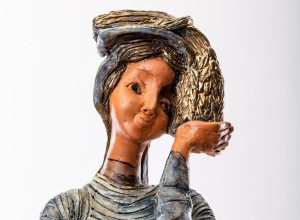
Call for 2024 Živa Award is out!
We kindly invite you to sign up for the Živa Award 2024 for the Best Slavic Museum and for the Best Slavic Heritage Site.
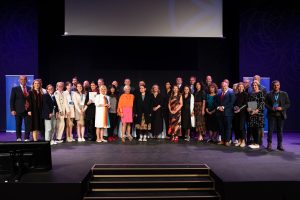
FSK announces the ŽIVA AWARD 2023 winning Slavic Museums at the ceremony in Bratislava!
The Forum of Slavic Cultures celebrated the nominated Slavic museums and the winners of the Živa Award 2023, on its ninth anniversary from 2 to 4 October 2023 in Bratislava.
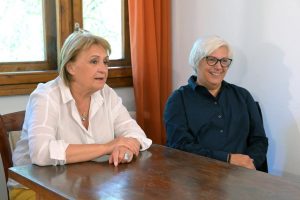
FSK Meeting with Bulgarian Ministry of Culture and “Etar” Museum Representatives
The Forum of Slavic Cultures is actively engaged in its 2024 activities. In August, director Andreja Rihter held a work meeting with officials from the Bulgarian Ministry of Culture and the Regional ethnographic open-air museum “Etar.” The primary purpose of this meeting was to enhance collaboration and discuss the upcoming Živa 2024 award ceremony.
STORY
The Slavic goddess Živa (also Żiwia, Siva, Sieba or Razivia) represents a principle of life, longevity, youthfulness, beauty, mildness, vitality and fertility. These are the attributes that should describe Slavic heritage as well.
The Živa Award has been established in 2012 on the initiative of an expert project group from the member countries of the Forum of Slavic Cultures.

